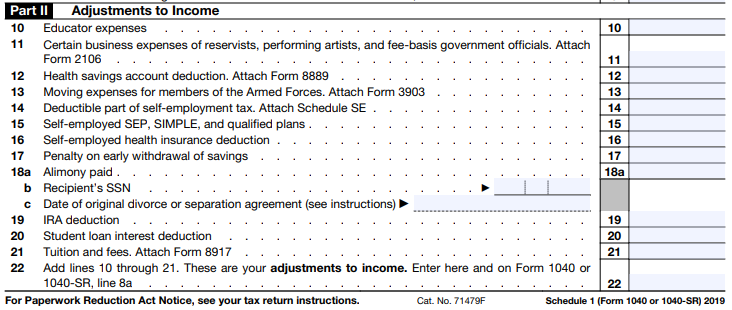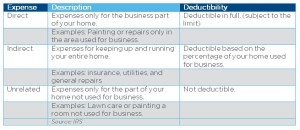Quiz: Do You Get the Most Out of Your Benefits?
April 03, 2017
Today is Employee Benefits Day. How will you celebrate? Don’t worry. Celebrating Employee Benefits Day does not require you to make a special trip to the party store or spend a single dollar.
In fact, the best way to celebrate it is to recognize and appreciate the value of your employee benefits and to maximize them for your personal financial situation. Don’t know where to start? Take this quick quiz to test your benefits knowledge.
1) You have decided it’s time to prepare a will. Where might you most likely find links to basic estate planning tools?
a. The public library
b. Your employee assistance program (EAP)
c. Your retirement plan provider
d. The HR department
2) Next year you plan to get laser eye surgery to correct your vision. Where is the best place to save extra money pre-tax to pay for it?
a. A health savings account (HSA)
b. An employee stock purchase plan (ESPP)
c. A flexible spending account (FSA)
d. A deferred compensation plan
3) Where you can save and invest for retirement so that the income after age 59 ½ will be tax-free?
a. Non-qualified stock options (NSOs)
b. Nowhere – there’s no such thing as tax-free retirement income
c. A cafeteria plan
d. A Roth 401(k)
4) During this year’s open enrollment, you choose a high deductible health plan (HDHP) because of the lower premiums. You have the option to save money pre-tax in an HSA to cover the deductible and a portion of out-of-pocket expenses. You should:
a. Skip the HSA. The point of choosing your health insurance was to save money.
b. Contribute no more than $1,000.
c. Contribute the maximum ($3,400 for an individual and $6,750 for a family in 2017). If you don’t need to use the money, you can roll it forward to future years.
d. Contribute no more than $1,500.
5) Taylor takes the train to work every day, Max drives and parks in the public garage and Jenna rides her bike. Who can use a pre-tax commuter benefits account offered by their employer?
a. Only Taylor. The point of pre-tax commuter benefits is to encourage employees to take public transportation.
b. Taylor and Max can contribute up to $255 per month in 2017, but not Jenna. There are no employer-sponsored bicycle benefits.
c. Everyone but contributions are from the employer only.
d. Taylor and Max can contribute up to $255 per month in 2017. Jenna can’t contribute pre-tax, but she can participate in her employer’s bicycle reimbursement program, for up to $20 per month in eligible expenses.
6) According to our recent financial wellness research, the single most important tool an employer can offer to boost employee retirement preparedness is:
a. A “bank at work” program
b. A retirement calculator
c. Incentive stock options (ISOs)
d. A target date fund
7) Which benefit replaces your income if you have an injury or illness which is not work-related?
a. Disability insurance
b. Long term care insurance
c. Workers compensation
d. Unemployment insurance
8) According to the 2016 Milliman Medical Index, what is the typical total cost for family coverage in an average employer-sponsored group health plan?
a. $25,826 for a preferred provider organization (PPO) plan
b. $6,742 for a health maintenance organization
c. $43,350 for a high deductible health plan (HDHP)
d. $15,003 for preferred provider organization (PPO)
9) Your employer will reimburse you up to $3,000 for an undergraduate course, a graduate course or a professional certification. How will the reimbursement be taxed?
a. Reimbursement for a professional certification will be taxed but not reimbursement for college/university courses
b. Reimbursement for college/university courses will be taxed but not reimbursement for professional certification
c. Tuition reimbursements are generally included in the employee’s taxable income
d. Tuition reimbursements of less than $5,250 are generally not included in the employee’s taxable income
10) What type of pre-tax benefit can you use to pay for after-school care expenses for your children?
a. Health savings account
b. None – after school care is not eligible for reimbursement
c. Education savings account
d. Dependent care flexible spending account
See the answers in italics below. How did you do? If you scored a 9 or higher, congratulations! Chances are that you see your employee benefits as an integral part of your overall compensation.
If you scored an 8 or lower, you may be leaving money on the table by not taking full advantage of everything your employer offers. If you have access to financial coaching via your workplace financial wellness program, consider setting up a time to talk to a planner about how you can fully maximize the value of your employee benefits. In addition, check out the blog posts for the rest of this week, which will focus on various aspects of your benefits.
Answers: 1 – b, 2 – c, 3 – d, 4 – c, 5 – d , 6 – b, 7 – a, 8 – a, 9 – d, 10 – d
Do you have a question you’d like answered on the blog? Please email me at [email protected]. You can follow me on the blog by signing up here, and on Twitter @cynthiameyer_FF.


